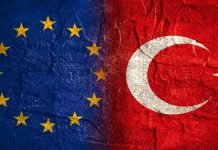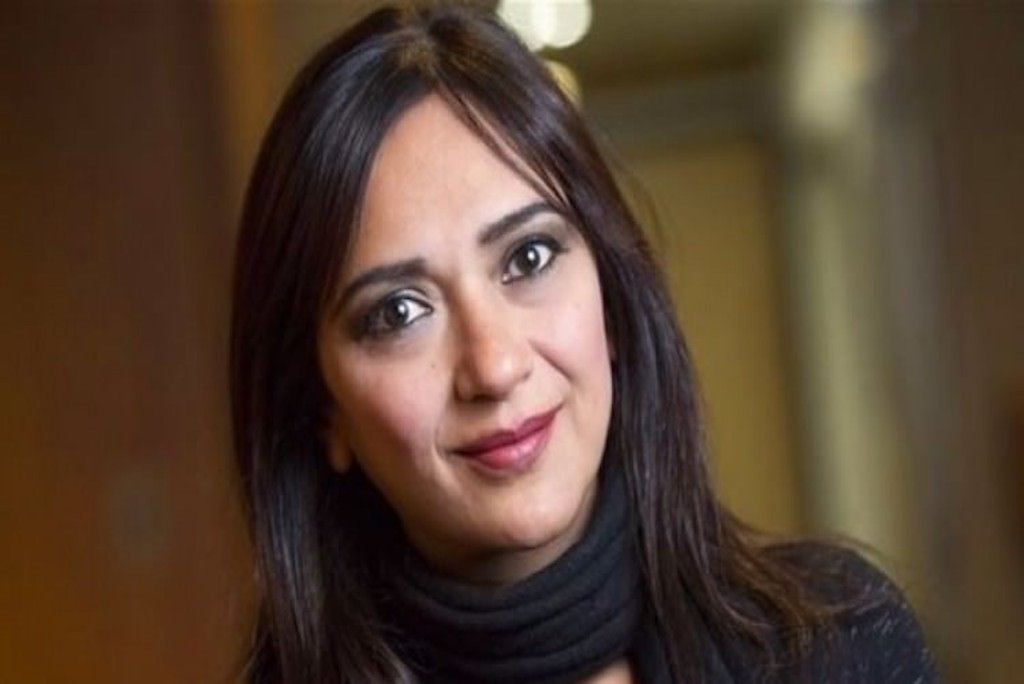Critics of President Recep Tayyip Erdoğan profiled by Turkish diplomats in New Zealand were charged with “membership in a terrorist group” by a Turkish prosecutor, a judicial document obtained by Nordic Monitor has revealed.
The information that was reported to the foreign ministry in Ankara was later used in a criminal indictment for a charge of terrorism by Turkish prosecutor Birol Tufan. Nordic Monitor previously reported on the intelligence gathering and profiling of organizations including a childcare center by the Turkish Embassy.
According to a December 12, 2018 decision by Tufan, the Ankara Chief Public Prosecutor’s Office launched a separate investigation (file no. 2018/224349) into 10 Turkish nationals who were listed in espionage files dispatched by Turkish Embassy in Wellington without any concrete evidence of wrongdoing.
The judicial document indicates that the Turkish Embassy gathered information on critics who are believed to be affiliated with the Gülen/Hizmet movement, a group critical of President Erdoğan, and that Turkish educators, representatives of local associations and businessmen living in New Zealand had been profiled by Turkish diplomats.
Judicial document dated December 12, 2018 exposed how the spying activities of the Turkish Embassy in Wellington triggered a criminal investigation in Turkey. (The names and addresses of the Turkish nationals have been redacted for security reasons.):
Last year, Nordic Monitor released official documents confirming how Auckland-based nonprofit organization Pearl of the Islands Foundation Inc. (PIF) and Little Pearls childcare center with branches located in the Owairaka, Mt Roskill and Mt Albert/Puketapapa districts were listed by Turkish diplomatic personnel. Then, Foreign Ministry intelligence documents were used in several indictments in what was seen as a blatant abuse of the criminal justice system by the Turkish government as part of its crackdown on critics, opponents and dissidents who have nothing to with terrorism at all.
PIF’s stated aim according to its website is “to celebrate diversity and advance social cohesion between cultures to contribute the educational, cultural and overall social well-being of our community through its established institutions, platforms, and activities.” It has promoted a moderate version of Islam against radical views and held seminars and lectures to that effect over the years. It has organized an Anzac study tour and cultural festival and offered Turkish language classes.

Critics of the Erdoğan government abroad, especially members of the movement, have been facing surveillance, harassment, death threats and abduction since President Erdoğan decided to scapegoat the group for his own legal troubles. They have often been denied consular services such as power of attorney and birth registry as well as revocation of their passports. Their assets in Turkey are seized and their family members at home risk criminal charges.
The judicial documents once more confirmed that spying activities by Turkish diplomatic missions result in serious consequences in the Turkish judicial system.
As previously disclosed by Nordic Monitor, the foreign ministry sent lists of profiled Turkish nationals in two CDs to the Ankara Chief Public Prosecutor’s Office, the national police and Turkey’s intelligence agency MİT on February 19, 2018 via an official document for further administrative or legal action, the punishment of their relatives back in Turkey and the seizure of their assets.
The public prosecutor who received the foreign ministry document on February 23, 2018 forwarded the classified CDs including information on 4,386 Erdoğan critics to the Organized Crimes Unit of the Ankara Police Department for further action. The police conveyed the results of its investigations to the public prosecutor.
According to judicial documents released by the Ankara 4th High Criminal Court on January 16, 2019, the foreign ministry compiled a long list of foreign entities that were owned and/or operated by people who were seen as close to the Gülen movement.
Moreover, Nordic Monitor revealed how MIT infiltrated refugee camps in Greece in order to spy on opponents who were forced to flee to Greece to escape an unprecedented crackdown in neighboring Turkey.
Turkish diplomatic missions continue systematic spying on Turkish government critics on foreign soil as confirmed by Foreign Minister Mevlüt Çavuşoğlu in February, 2020. Çavuşoğlu said Turkish diplomats assigned to embassies and consulates have officially been instructed by the government to conduct such activities abroad. “If you look at the definition of a diplomat, it is clear. … Intelligence gathering is the duty of diplomats,” Çavuşoğlu told Turkish journalists on February 16, 2020 following the Munich Security Conference, adding, “Intelligence gathering and information collection are a fact.”
In his interview with The Globe and Mail, Turkish Ambassador to Canada Kerim Uras also admitted to spying on 15 Turkish-Canadians. “Any embassy would focus on the threats targeting their countries. That’s what every embassy does,” he told The Globe and Mail.
Turkish Ambassador to Uganda Kerem Alp spoke to the state-run Anadolu news agency in March and confirmed that Turkish diplomats collect information on the business activities of Erdoğan critics living abroad and profile their companies as if they were part of a terrorist organization. Alp also revealed how the embassy was gathering information on medical staff, educators and humanitarian volunteers working for Ugandan institutions. “There were some FETÖ followers who had sought to hide in Uganda and were working in schools or hospitals. … They have been disguising themselves as humanitarian workers,” he told the news agency. FETÖ is a derogatory term coined by the Turkish government to refer to the movement.
It is clear that Turkish diplomatic missions violate the domestic laws of receiving states and the principles of international law by conducting unlawful information-gathering campaigns and sweeping intelligence operations. In the aftermath of a coup attempt in Turkey on July 15, 2016, some Western countries launched investigations into the spying activities on Turks and Turkish organizations overseas by Turkish Foreign Ministry personnel, representatives from relevant authorities, imams and intelligence officers accredited as diplomats.
The Turkish president turned against the Gülen movement after major corruption investigations in December 2013 that incriminated Erdoğan, his family members and his business and political associates. The order to spy on Gülen-affiliated people and organizations came in early 2014, and volunteers of the movement were targeted with criminal prosecutions on fabricated charges of terrorism.
The crackdown on the movement intensified after the coup attempt. Since then, the assets and wealth of individuals, corporations and organizations that were seen as affiliated with the movement were branded as war spoils open to plunder. More than 130,000 civil servants have been dismissed by the government with no effective judicial or administrative investigation, 4,560 of whom were judges and prosecutors and were replaced by pro-Erdoğan staff.
















